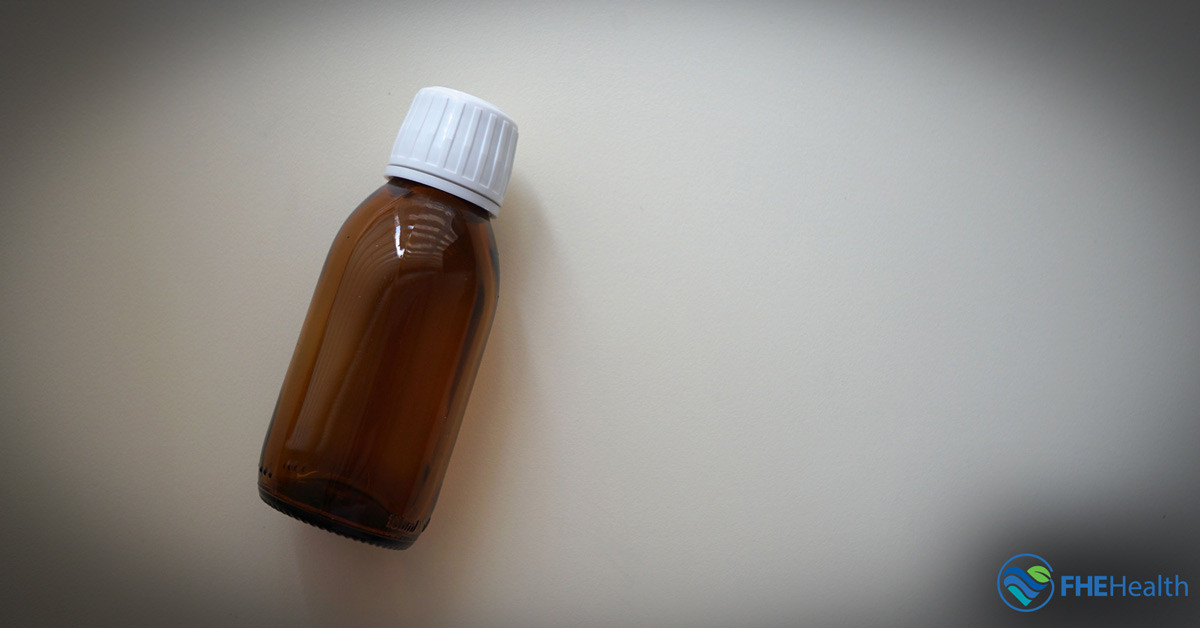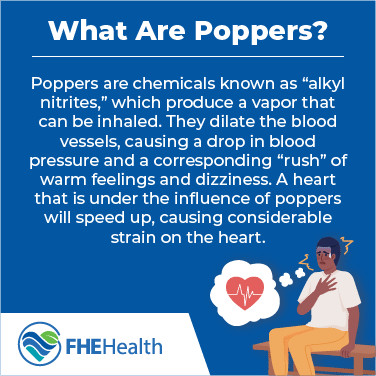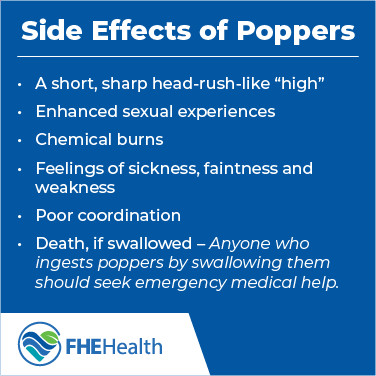Poppers, known chemically as alkyl nitrites, are inhalant drugs often associated with recreational use, particularly within the LGBTQ+ community. If you’re asking “Where Can I Buy Poppers,” it’s crucial to understand what these substances are, their intended uses, and most importantly, the significant health risks they pose. This article aims to provide a comprehensive overview, moving beyond just availability to explore the dangers and why seeking them out may not be the best choice for your health and well-being.
What Exactly Are Poppers?
 What are poppers
What are poppers
Poppers are not a new phenomenon. They are liquid chemicals, alkyl nitrites, that release vapors when exposed to air, which are then inhaled. Marketed under various brand names like “Ram,” “Thrust,” or “Rock Hard,” these substances are typically sold in small bottles. The chemical action of nitrites causes blood vessels to dilate, leading to a rapid drop in blood pressure. This results in a fleeting “rush,” characterized by warmth and dizziness, often compared to the initial effects of alcohol. Paradoxically, while blood pressure decreases, the heart rate actually increases, placing strain on the cardiovascular system.
Historically, nitrites like amyl nitrite were used medically to treat angina, chest pain caused by insufficient blood flow to the heart. These medical versions were packaged in small glass ampoules that were “popped” open to release the vapors for inhalation—hence the slang term “poppers.”
Why Do People Use Poppers? Exploring the Appeal and Dangers
 What are Poppers – alkyl nitrites
What are Poppers – alkyl nitrites
Today, the primary reason for popper use is to enhance sexual experiences, particularly among men who have sex with men (MSM). The vasodilating effects of poppers relax smooth muscles throughout the body, including the anal sphincter. This relaxation is reported to make anal sex more comfortable and less painful. Furthermore, users often report intensified sexual sensations and orgasms due to the altered blood flow and heightened physical awareness induced by the drugs.
However, relying on poppers for sexual enhancement comes with significant risks. While the perceived benefits might seem appealing, it’s crucial to understand the potential for harm. The question “where can I buy poppers” should be immediately followed by “what are the dangers of poppers?”
The Connection Between Poppers and Risky Sexual Behavior
The pursuit of enhanced sexual pleasure with poppers can be linked to broader issues, including risky sexual behavior. The altered state of mind and disinhibition caused by poppers can lead to less cautious decision-making regarding sexual health, increasing the risk of contracting sexually transmitted infections (STIs).
Poppers and Addiction Concerns
While poppers are not considered chemically addictive in the same way as substances like opioids or cocaine, they can contribute to behavioral or process addiction, particularly in individuals already prone to addictive behaviors, such as sex addiction. Research has indicated a correlation between the use of club drugs like poppers and sex addiction, especially within the gay male community, where rates of sex addiction may be higher.
The underlying issue might not be just the desire for sexual enhancement, but a deeper reliance on substances to cope with emotional or psychological distress.
Mental Health and Popper Use
Beyond sex addiction, popper use can be a form of self-medication for underlying mental health conditions. Research suggests a link between popper use and:
- Mood disorders like depression
- Anxiety disorders, especially social anxiety
- Attention-deficit/hyperactivity disorder (ADHD), particularly in childhood
- Obsessive-compulsive disorder (OCD)
It’s not uncommon for individuals to experience co-occurring mental health issues alongside addiction-related problems, creating a complex situation where substance use becomes a maladaptive coping mechanism.
Seeking Help Instead of “Where to Buy”
If you’re searching “where can I buy poppers” due to any of the reasons mentioned above—sexual enhancement, underlying addiction, or mental health concerns—it’s vital to reconsider and seek help instead. Focusing on the question of where to buy poppers overlooks the more important question of why you are seeking them out and the potential harm involved.
Dual diagnosis treatment programs can address both substance use and co-occurring mental health disorders. Medically integrated treatment approaches offer comprehensive care that considers both the physical and psychological aspects of well-being. Reaching out to a behavioral health provider is the first step toward a healthier path.
How Are Poppers Typically Used?
Poppers are almost exclusively used by inhalation. The most common method is to sniff the vapors directly from the bottle. Some users may soak a cigarette in the liquid and inhale through the cigarette, although this method carries additional risks, including burns.
The effects of poppers are rapid, typically felt within seconds, but short-lived, usually fading within a few minutes. This short duration can lead to repeated use in a session, increasing exposure to the harmful chemicals. The quick and disorienting effects have also been linked to accidents, such as burns from mishandling the bottles or lit cigarettes.
Types of Harmful Chemicals in Poppers
Poppers are composed of various alkyl nitrites, each carrying its own set of risks. Amyl nitrite was the original compound used for angina treatment and the first to gain recreational popularity in the 1960s. As restrictions on amyl nitrite increased, other alkyl nitrites emerged, including amyl nitrate, butyl nitrite, isobutyl nitrite, and isopropyl nitrite.
Each of these chemicals poses potential harm, ranging from unpleasant side effects to severe, even fatal, complications:
- Amyl nitrate: Linked to memory problems, delirium, hallucinations, paranoia, and death (dose-dependent). Long-term use can lead to brain damage, heart disease, liver and kidney failure, permanent hearing loss, slurred speech, and tremors.
- Amyl nitrite: Carries the risk of fatal asphyxiation in the short term and heart and blood vessel problems with prolonged use.
- Butyl nitrite: Extended use can cause serious damage to multiple organs, including the heart, brain, blood vessels, muscles, liver, and kidneys. Immediate effects can also lead to sudden death.
- Isobutyl nitrite: Studies on mice have shown neurotoxicity, impairing motor coordination, memory, and learning.
- Isopropyl nitrite: The British Medical Journal has warned about visual disturbances, blurred vision, blind spots, and retinal damage, with no guarantee of recovery even after stopping use.
Side Effects to Be Aware Of
Poppers can induce a range of adverse side effects, including:
 Side Effects of PoppersIntense but brief “high”: A short, sharp head-rush lasting only a few minutes.
Side Effects of PoppersIntense but brief “high”: A short, sharp head-rush lasting only a few minutes.- Sexually related effects: While sought for enhanced sexual experiences, these are still side effects. Reported effects include prolonged orgasm sensation, potentially stronger erections (though erectile dysfunction is also reported), and relaxation of anal muscles.
- Chemical burns: Skin irritation and rashes around the nose and mouth, as well as nose and throat irritation are common due to direct chemical contact.
- General physical discomfort: Feelings of sickness, faintness, and weakness.
- Coordination issues: Poor coordination and dizziness.
- Danger of ingestion: Swallowing poppers is extremely dangerous and can be fatal due to chemical burns in the mouth and throat, severe nausea and vomiting, and lethal poisoning. Immediate medical help is essential if poppers are swallowed.
Popper use is particularly dangerous for individuals with pre-existing conditions like heart problems, anemia, or glaucoma, and can be fatal in these cases.
The Serious Dangers of Poppers: What You Must Know
The dangers of poppers extend beyond immediate side effects and include:
- Dangerous drop in blood pressure: Poppers can cause blood pressure to plummet to dangerously low levels.
- Oxygen deprivation and organ damage: Damage to red blood cells and reduced oxygen supply to vital organs can be life-threatening.
- Loss of consciousness and choking: Unconsciousness and potential death from choking on vomit, especially when combined with alcohol.
- Increased risk of STIs: Link to risky sexual behavior, increasing the likelihood of contracting sexually transmitted infections.
- Flammability and skin burns: Poppers are flammable and can cause severe skin burns on contact.
- General malaise: Nausea, headaches, and disorientation are common.
- Sudden Sniffing Death Syndrome: Fatal “sudden sniffing death syndrome” can occur due to abnormal heart rhythms triggered by poppers.
- Vision Loss: Cases of both temporary and permanent vision loss have been reported in popper users in recent years.
Combining poppers with alcohol significantly increases the risk of oxygen deprivation, unconsciousness, and death. Despite being legally available in some contexts, poppers are far from safe.
Brain Damage: A Potential Long-Term Consequence
Perhaps the most concerning long-term risk associated with popper use is brain damage. Research has indicated that inhalants like poppers can damage critical brain regions, including the cerebral cortex and cerebellum. This damage can manifest as personality changes, memory loss, hallucinations, impaired coordination, and slurred speech.
Animal studies, such as the 2016 study on isobutyl nitrite, have corroborated these findings, demonstrating impaired motor skills, memory, and cognitive function in subjects exposed to these chemicals.
Are Poppers Addictive? Considering Dependence
While not classified as chemically addictive in the same way as some drugs, poppers can lead to behavioral dependence. Their association with sexual activity, coupled with potential underlying process addictions or mental health issues, can create a cycle of use that becomes difficult to break. The perceived enhancement of sexual experiences can reinforce popper use, leading to psychological dependence.
Take Decisive Action for Your Health
Instead of searching “where can I buy poppers,” shift your focus to your health and well-being. If you or someone you know is using poppers, it’s a cause for serious concern and warrants immediate action. Contacting a behavioral health professional who specializes in substance use and process addictions is a crucial step. They can provide guidance, whether it’s intervention for a loved one or seeking personal recovery.
Your health and life are invaluable. No chemically induced experience is worth jeopardizing them. If you are considering using or are currently using poppers, prioritize seeking help and support. Reach out to resources like FHE Health to begin your journey toward a healthier and safer life.

